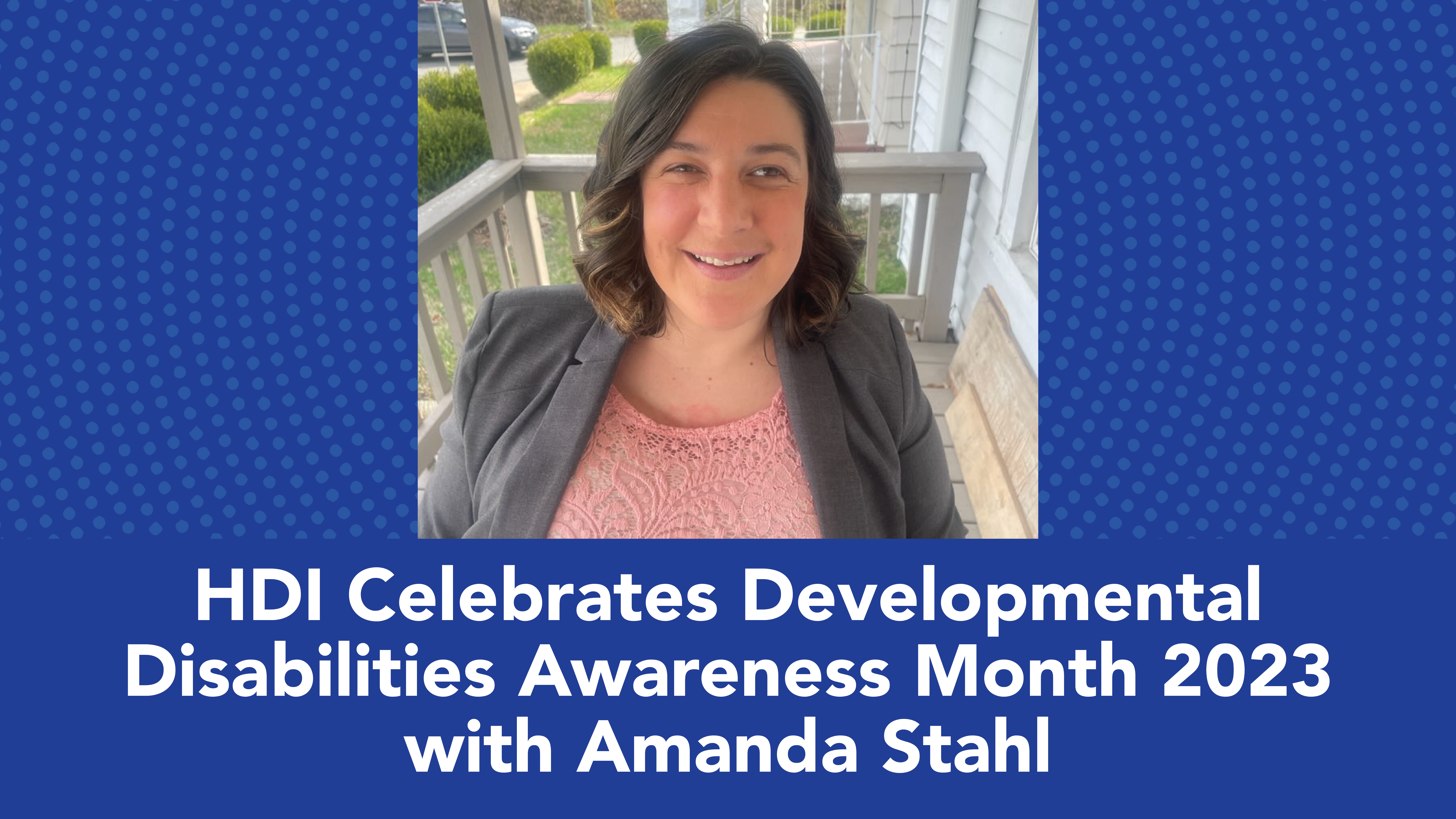This month (March), HDI celebrates Developmental Disability Awareness Month. For some people, that may lead to questions about what defines a developmental disability. Developmental disabilities are conditions that begin during development and usually last throughout a person’s life.
For Amanda Stahl, LCSW, it’s a wide spectrum.
“It’s a disability that happens before the age of 18,” Stahl said. “A disability that affects your daily life skills. It affects your development, how you become who you are as a person.”
But at the same time, Stahl stresses that there is a human being behind every label and every diagnosis.
“In my work, I don’t focus only on definitions. I focus on people’s stories,” she said.
As part of her work with Merge, an HDI project focused on improving mental health access for individuals with mental health conditions and developmental disabilities, she’s helping ensure those stories are told.
Merge seeks to improve the mental health systems that support people with co-occurring mental health conditions, and intellectual and developmental disabilities. Stahl is one of the researchers interviewing people with lived experience for Merge.
“Some of the work that I’m doing is going around Louisville and going around to different parts of the state and collecting people’s stories around their experiences with mental health and disability,” she said. “What were the good experiences they had, what were the negative experiences they’ve had, what would they want to recommend to other direct support professionals and providers?”
Stahl thinks that isolation, loneliness, and societal expectations placed onto some people with disabilities can have a tremendous negative impact on the mental health of individuals with disabilities.
“It’s not done on purpose,” she said, adding that some have difficulty find more positive ways to think about themselves until they find ways of building community and experiencing inclusion. “People with disabilities may be isolated from other people with disabilities, including older people with disabilities,”
She also noted that she sees patterns in the interviews she’s completed. For example, she finds that even experienced mental health providers can have difficulty working with people with developmental disabilities, especially those who are in more controlled environments. Sometimes individuals, she says, may not feel like they have the space to feel or process their emotions. Another thing that she noted is that a lot of individuals with lived experience feel like outsiders.
“Knowing my own story, a lot of their stories are very similar,” Stahl said. “I felt like I was the only one until I met this one person.”
Stahl hopes soon to do more research on individuals in day programs to get an even wider view on what the community’s needs are. From there, the information will be used to develop training that will be designed for individuals and providers around the state.
“I’m trying to get stories from the most impacted people,” she said. Ms. Stahl stressed that people often underestimate others due to disability – something she says is a mistake.
“There may be limitations to what someone can do,” she said. “But always assume people can do more than you think they can.”
Amanda Stahl, LCSW, is a Disability and LGBTQ+ Activist from Louisville, Kentucky. Amanda is the lead organizer and director of a non-profit organization called the Independence Seekers Project (ISP), organized and developed by people with intellectual and developmental disabilities.
